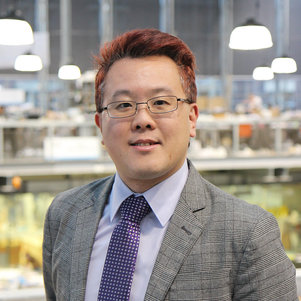Design and Construction Management
Research area
The key domain in Design & Construction Management addresses questions of process control in the development and realisation of the construction and renovation of buildings, with building process innovation as a specific area of attention. The aspects of design management and cost/quality are integrated at the building level in the development and realisation phases. The section responds to the challenges of managing construction projects with an emphasis on the added value of design, engineering and construction companies in the construction supply chain. Process innovations are developed that contribute to ensuring and improving the quality of housing, focusing on energy efficiency, environmental impact, safety and health, usability, of both existing and new housing.

Main research topics
With grand societal challenges such as the environmental and ecological crisis and the provision of affordable and decent housing in the context of rapid urbanisation, the Architectural Engineering and Construction (AEC) industry is facing higher performance demands for its products and services. To respond to these challenges, Design and Construction Management (DCM) delivers research and education around new ways of reconfiguring work processes in the production of the built environment to meet the goals of creating a circular economy that emphasises greater responsiveness, reliability, quality and resource efficiency in the through-life delivery of built environment projects. DCM is also developing capability in understanding and addressing the opportunities and challenges posed by digital innovation in the context of the fourth industrial revolution. The ambition of DCM to address social, environmental and technological change through the production of future built environments is realised by engaging with four challenging themes. These include examining questions of (1) technological change and its impacts on ways of designing, constructing and managing built assets; (2) institutions, institutional work and institutional change; (3) how people cope with change, and (4) configurations of systems in producing the built environment. To answer these questions, DCM engages with key supply and demand-side actors, including clients, end-users, consultants, contractors, as well as policy makers and regulators, to co-produce evidence-based insights, build scenarios and foresights, and support the AEC sector to make sustainable transitions.
Construction Management and Entrepreneurship (CME) focuses on the challenges of managing construction projects with an emphasis on the added value of design, engineering and construction companies in the construction supply chain. To respond to current societal needs, such as the energy transition and the circular economy it is crucial to tap the innovation capacity of the entire construction chain. The focal aim of CME is to explore new theories and concepts related to the development of innovative, entrepreneurial power in the construction supply chain. Important themes are (circular) business models and supply chain management, value capture strategies in architectural and engineering companies and entrepreneurial behaviour to transform innovations into successful business goals. In the coming period, CME will study 1) risk related behaviour of construction companies in the supply chain, especially as actor in Integrated Project delivery and circular construction projects, and 2) the impact of (tech) start-ups on innovation processes in the circular construction supply chain.
The focus of Building Law is the interpretation, development and implementation of legal instruments for modern and innovative forms of organisation of building activities. This involves both existing and new instruments. It refers to different scales: from individual buildings to inner-city re-developments. Aims: the emergence of new technology leads to changes in design processes for buildings. New design processes lead to legal questions. For example, (1) supply chain cooperation leads to questions regarding the legal form of relations between parties, (2) BIM models, in which different parties contribute, can lead to questions of liability if the design holds a fault. To answers this type of questions, Building Law closely cooperates with designers, builders and other actors to fully analyse the issue. Building Law wants to come up with answers to the questions which are legally sound and feasible in practice, such as: how can legal instruments enable the development of designs and buildings which are aimed to satisfy continuously higher performance requirements?
Housing Quality and Process Innovation performs research and education on innovations of policies and processes to improve the physical quality of new and existing housing to achieve a carbon free building stock in 2050. The physical quality is elaborated in terms of energy performances, sustainability, safety, health, accessibility and functionality of houses. In recent years HPQI, in collaboration with BEE (Building Energy Epidemiology), worked on a combination of evaluation research with big data sets on the indicators for real energy use and the progress of energy renovations in NL and the EU, and the analyses of energy renovation processes in China. Since 2018 much effort has been put in the development of a national platform for innovation in the Netherlands: The Building and Technology Innovation Center (BTIC). This platform will develop large national research and innovation programmes for the Energy transition in the existing building stock, Digitisation, Circular building economy, Renewal of infrastructure and Climate adaptation. This creates huge opportunities for new research within the faculty. HQPI has developed close relations to several universities interested in combined activities. This already resulted in a TU Delft summer school given in Xi’an for Chinese students.
Public Commissioning focuses on identifying and professionalising the field of ‘Commissioning’ in the public sector, building knowledge in this area and providing education about the role of the client in the construction process. In particular, the chair focuses on clients in asset management, not only on the professionalisation of commissioning with respect to a specific task, but also on the demands that places on public organisations, the necessary organisational structures, processes and competencies.
Building Energy Epidemiology (BEE) performs research and education on buildings and their energy systems, focusing on the assessment of operational performances. BEE operates along two lines: 1) Building stocks (e.g., national, housing associations, cities), with the questions how to assess their energy and environmental performances making use of actual energy and socio-economic data and building stock models. The aim is to deliver robust data to policy and decisions makers on efficient strategies for a carbon free building stock; 2) Buildings, with the questions how to develop data-driven automated inspection methods and to diagnose underperformance in terms of energy use, environmental impacts and indoor climate and how to steer on high operational performances against the background of smart complex energy systems. The aim is to deliver robust methods to the building, energy and HVAC industries ensuring high operational performances.
